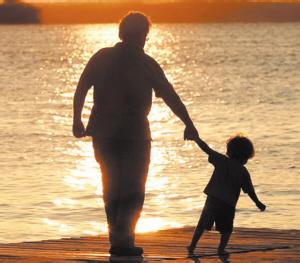I now know he participated in some things vicariously through me, his only son. When I played ball (poorly), he "played" too. When I joined the Navy he "joined" too. And when I came home on leave, he saw to it that I visited his office. Introducing me, he was really saying, "This is my son, but it is also me, and I could have done this, too, if things had been different." Those words were never said aloud.












